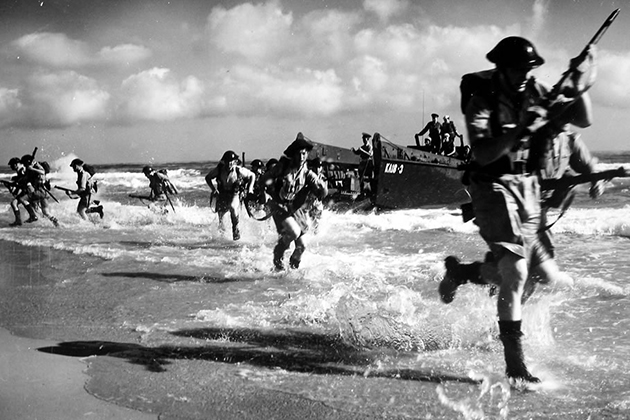
As people all over the world observe the 70th anniversary of the Allied invasion of Normandy – widely considered the turning point of World War II – some commenters have expressed concern that the passing of the generation that fought the war means people are at risk of forgetting the importance of that titanic struggle.
If so, that would be nothing new, according to data archived at the Roper Center for Public Opinion Research at UConn.

Public knowledge of D-Day was already waning 20 years ago, despite saturation media coverage of the invasion’s 50th anniversary and a much greater number of D-Day veterans still alive, according to a CBS News poll archived at the Center.
When asked “As far as you know, what does the term ‘D-Day’ refer to?” only 27 percent gave the correct answer, 29 percent responded they did not know or offered no answer, and 44 percent gave an incorrect response. Among those who answered incorrectly, the most frequent response was that D-Day was the day the U.S. won the war or the day the war was over. Another 10 percent thought D-Day was the day Japan bombed Pearl Harbor. Another 7 percent linked D-Day to the U.S. bombing of Japan or dropping the atomic bomb on that nation.
“We’re a country that makes a point of honoring our veterans, but it seems we’re not always clear exactly what we’re honoring them for,” says Paul Herrnson, director of the Roper Center and a political science professor at UConn.

Americans did a little better 10 years later, when provided with the prompt that D-Day involved an invasion by the Allies during World War II. Gallup surveys archived at the center showed that in 2004, roughly 60 percent of Americans were able to identify Germany as the adversary on that day, and France/Normandy/Omaha Beach as the location of the fighting.
In their analysis, Gallup found that the WWII generation and their children, aged 50 and over at the time, were more likely to give an accurate response to these two questions (approximately 70 percent) than were young adults (40 percent-50 percent).
However, education was a much better correlate of an accurate perception of D-Day than age, with only 16 percent-17 percent of college graduates either not knowing or mistaken in their perceptions of where the Allied landing occurred or who the Allies were fighting that day, compared to 48 percent-49 percent of respondents with only a high school degree.

A lack of accurate knowledge about D-Day isn’t restricted to the U.S. population. A poll taken by FirstNews, a British online weekly for young adults, on May 21, 2014, shows that 38 percent of its readers believed D-Day was either during WWI (16 percent) or the Iraq War (22 percent).
Age also plays a role in Britain. A survey of 18-35 year olds commissioned by Universal Pictures in support of the Royal British Legion showed that just over half (52.45 percent) knew that D-Day marks the day of the Normandy landings, with over a fifth (21.66 percent) suggesting that it marks the end of the Great War (The Courier, May 16, 2014). These results are very similar to Gallup’s findings for this age group in the U.S. in 2004.
“There will be ceremonies and speeches to commemorate the anniversary of D-Day this week, and as we pause to mark the occasion,” says Herrnson, “it’s worth stopping to ask how well we’re keeping the memory of those events alive.”


